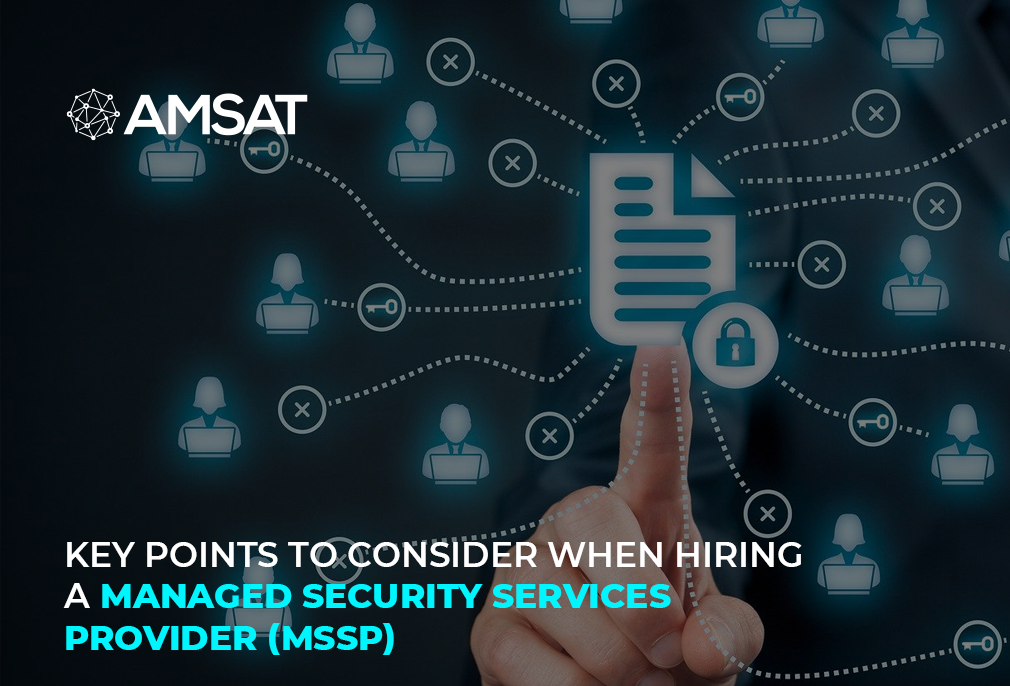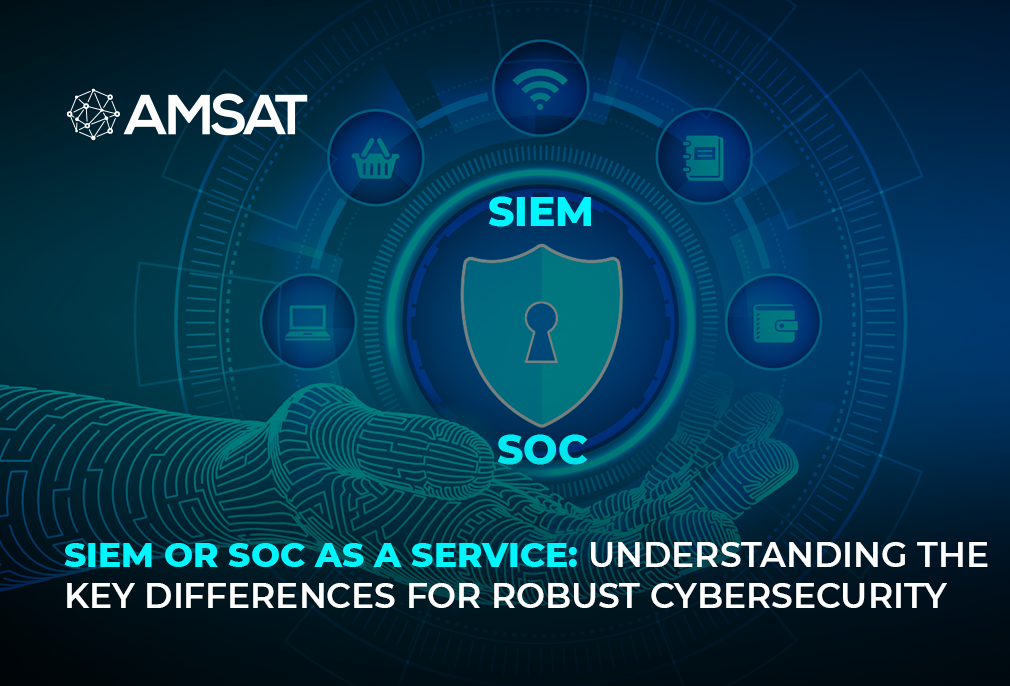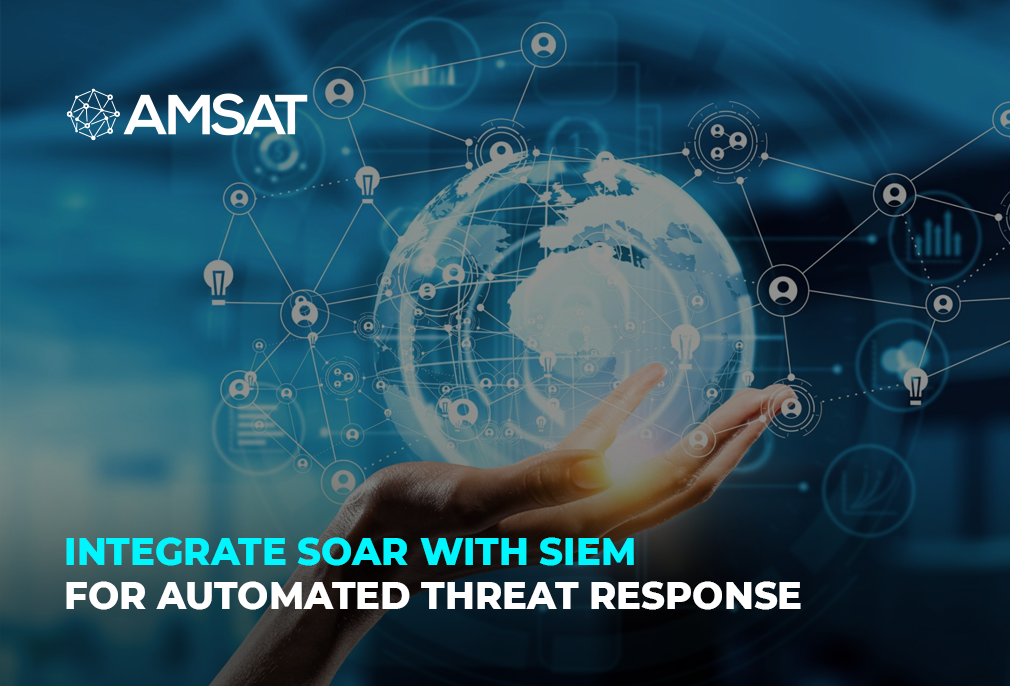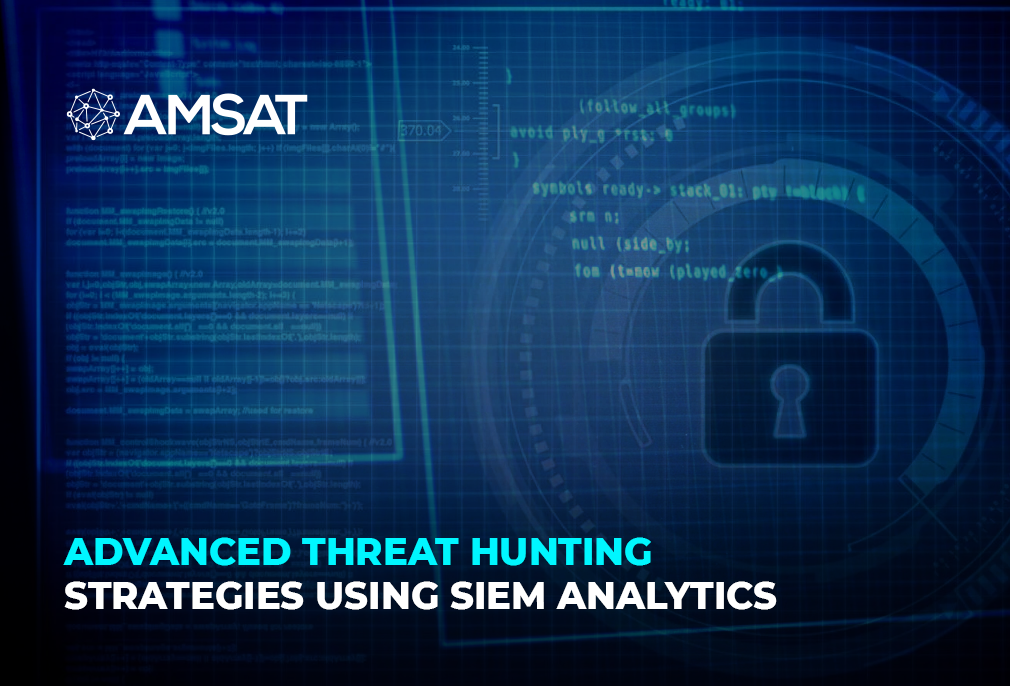Latest Blogs
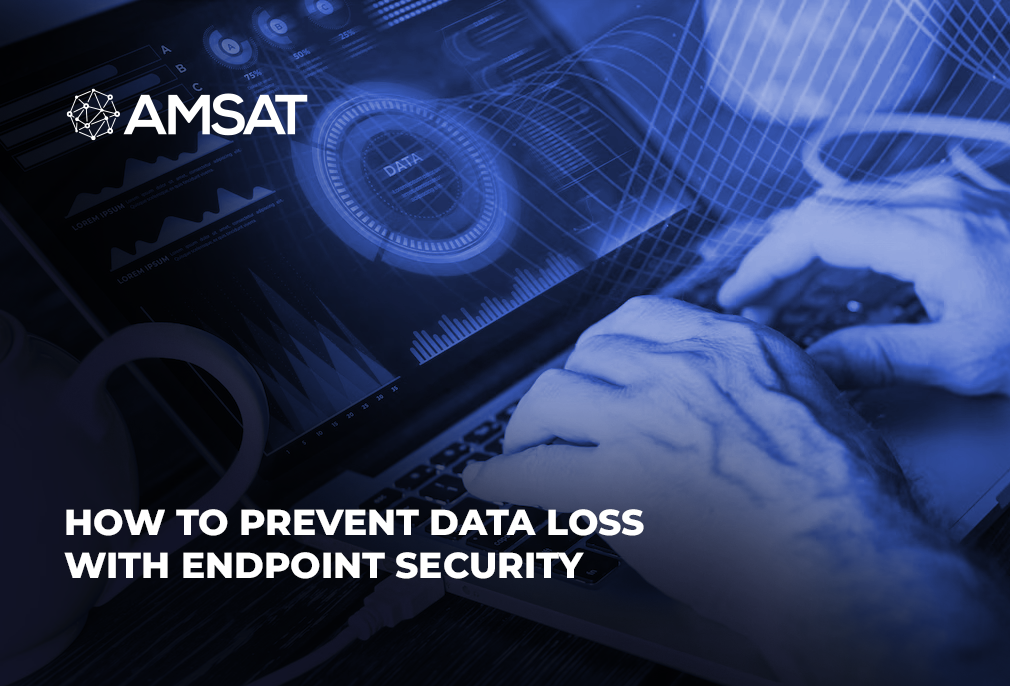
By AMSAT July 27,2023
How to Prevent Data Loss with Endpoint Security
Introduction
Endpoint security is the practice of protecting devices that connect to a network, such as laptops, desktops, and mobile devices. It is a critical component of any organization’s overall security posture, as it can help to prevent data loss, malware infection, and other cyberattacks.
There are many different aspects to endpoint security, including:
Device management: This involves keeping devices up to date with the latest security patches and software.
Application control: This allows organizations to control which applications can be installed and run on endpoints.
User behavior analytics: This helps to identify and prevent malicious activity by users.
Data loss prevention (DLP): This helps to protect sensitive data from being leaked or stolen.
DLP policies are an important part of endpoint security because they can help to identify and protect sensitive data. This data can include credit card numbers, social security numbers, and intellectual property. DLP policies can also help to prevent users from accidentally or intentionally sharing sensitive data with unauthorized individuals.
In addition to DLP policies, there are other ways to prevent data loss with endpoint security. These include using strong passwords and multi-factor authentication; encrypting sensitive data; and backing up data regularly.
By offering comprehensive endpoint security services, organizations can help to protect their data from a variety of threats.
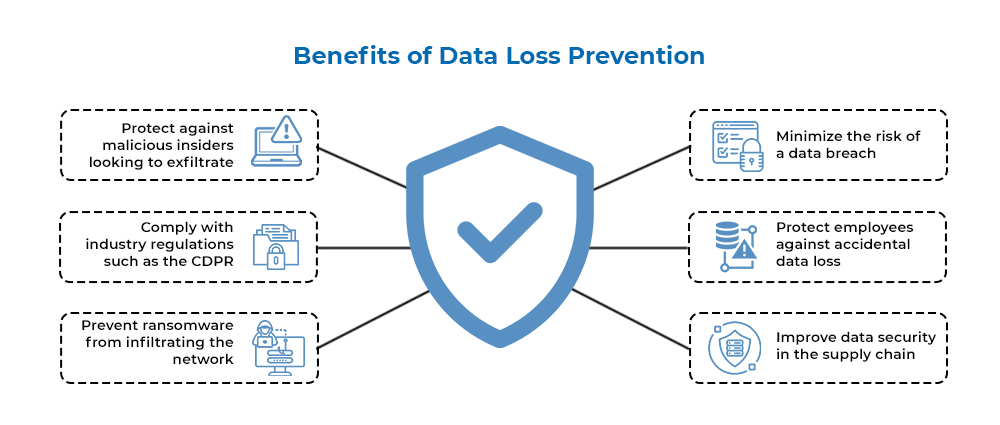
How Endpoint Security Can Help Prevent Data Loss
Endpoint security can help prevent data loss in a number of ways. First, it can help to identify and protect sensitive data. This is done by using DLP policies to classify sensitive data and then monitor for unauthorized access or exfiltration of that data.
Second, endpoint security can help to prevent malware infection. This is done by using antivirus and anti-malware software to scan devices for malicious code. Endpoint security solutions can also help to block malicious websites and attachments.
Third, endpoint security can help to prevent unauthorized access to devices. This is done by using firewalls and intrusion detection systems to monitor network traffic and identify suspicious activity.
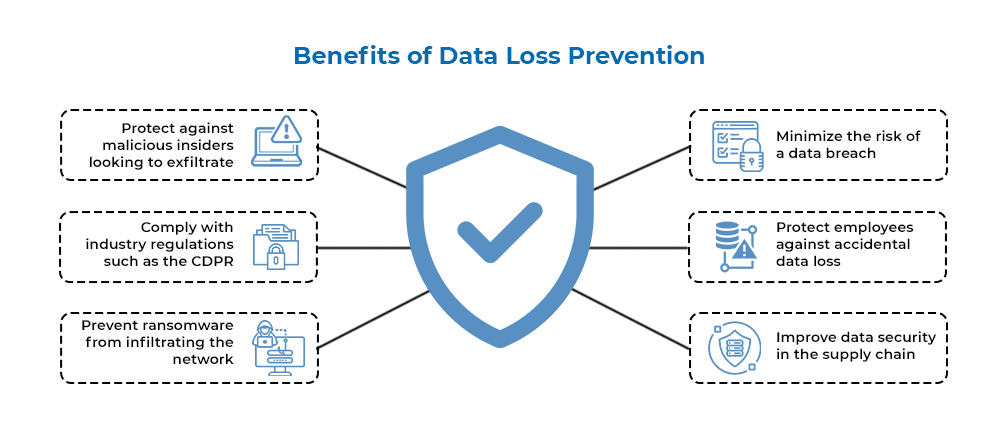
Best Practices to Prevent Data Loss
Below are some best practices every security team should follow in its DLP strategy and when considering DLP tools.
Identify and Classify Sensitive Data
Understanding the different types of data you have is the first step in successful data preservation. Your data repositories will be searched and reported on by data discovery and data classification technology, giving you access to the content you need to safeguard.
As information is modified, created, stored, or delivered, data categories can be updated. However, security measures must be in place to stop users from changing category levels. For example, lowering data categorization should only be possible for privileged users.
Assess Internal Resources
Organizations must determine the necessary DLP skills and activities, such as risk analysis, data breach response, reporting, data protection regulations, and DLP training and awareness, before they can create and implement a DLP plan. Some governmental restrictions require businesses to seek outside experts or engage in-house data protection specialists.
For example, the General Data Protection Regulation (GDPR) of the European Union has regulations that apply to businesses that sell goods. A data protection officer (DPO), who will be in charge of compliance audits and DLP performance monitoring, must also be designated in accordance with the GDPR.
Implement in Phases
Data loss prevention (DLP) is a long-term process that is most effective when implemented incrementally. This means that you should start by prioritizing the most important data types and communication routes, and then add additional modules or components as needed.
Your priorities should be based on a thorough risk analysis and data inventory, which should be performed at the beginning of the process.
Establish Data Management Policies
Data loss prevention (DLP) policies should be created to manage different data and communication types. Government regulations set standards for DLP policies, which include handling sensitive data and recovery strategies in case of data loss. DLP personnel can then customize policies based on the organization’s needs.
DLP systems use pre-configured rules or processes based on different regulations, such as GDPR or HIPAA. One example of a DLP software and enforcement package is McAfee DLP Prevent, which monitors outbound channels and offers options to resolve potential security breaches. Machine learning technologies automate these checks to ensure reliable security.
Train Your Employees
Data loss prevention (DLP) depends on employees understanding and following security policies and procedures. Training and education, such as classes, online training, occasional emails, and posters, can help employees understand the importance of data security and how to follow recommended DLP best practices.
If you are interested in learning more about how to prevent data loss with endpoint security, please contact us today. We would be happy to discuss your specific needs and help you implement a solution that is right for your organization.
Conclusion
Endpoint security is a vital pillar of any comprehensive cybersecurity strategy for organizations. By effectively implementing endpoint security measures and adhering to industry best practices, companies can significantly reduce the risk of data loss and safeguard their critical information from potential threats. Protecting sensitive data is paramount in today’s digital landscape, where cyberattacks are ever-evolving. Through our expert services, we aim to guide and support organizations in fortifying their endpoints, securing networks, and bolstering their overall cybersecurity posture.
Reach out to us today, and our team of specialists will be delighted to engage in a tailored discussion, addressing your specific needs and devising a customized solution suitable for your organization’s unique challenges.
TAGS
- Cyber Crime
- Endpoint Security
Recent Blogs
Ready to Get Started?
Our specialists are ready to tailor our security service solutions to fit the needs of your organization.
